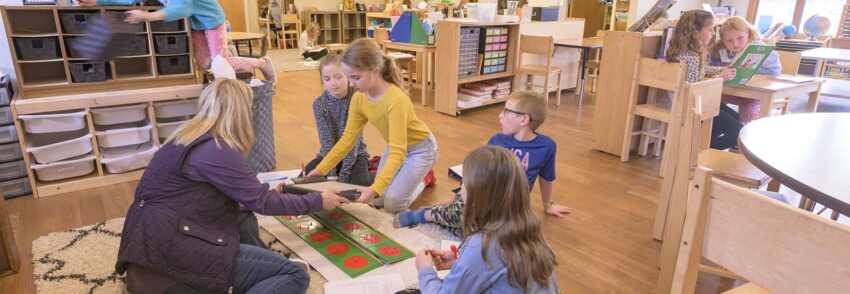Beyond the Classroom: Montessori Teaching Inspires Lifelong Learning
Montessori education is a unique teaching method that goes beyond traditional classroom boundaries. Developed by Maria Montessori in the early 1900s, this approach not only focuses on academic skills but also fosters lifelong learning and personal development. In this article, we explore how the Montessori teaching philosophy encourages a love for learning that lasts a lifetime.
Child-Centered Learning Environment
One of the core principles of Montessori education is creating a child-centered learning environment. Rather than a teacher-centered approach, where the educator is the sole provider of knowledge, Montessori classrooms value independence and active participation. Children are encouraged to explore their own interests and follow their natural curiosity. This fosters a sense of ownership over their learning experience, promoting a lifelong love of learning.
Hands-On Learning Materials
Montessori classrooms are filled with hands-on learning materials that promote engagement and instill a deep understanding of concepts. These materials are designed to be self-correcting, allowing children to learn from their own mistakes and develop problem-solving skills. Whether it’s counting beads, practicing letter formation, or engaging in sensory activities, these materials make learning exciting and interactive. By actively engaging with the materials, children develop a keen interest in the process of learning and become lifelong learners.
Mixed-Age Classrooms
Unlike traditional classrooms that separate students by grade level, Montessori classrooms often have mixed-age groups. Younger children have the opportunity to learn from older peers, while older children reinforce their knowledge by helping younger ones. This creates a cooperative learning environment that encourages collaboration, empathy, and mutual respect. By interacting with peers of different ages, children gain a broader perspective on the world, enhancing their capacity for lifelong learning.
Freedom of Choice and Responsibility
In a Montessori classroom, students have the freedom to choose their activities based on their own interests and abilities. This sense of autonomy fosters intrinsic motivation, as children become self-directed learners. They learn to take responsibility for their choices and actions, developing qualities such as self-discipline, time management, and decision-making skills. This sense of ownership empowers children to explore new subjects, seek out challenges, and continue learning long after their formal education.
Montessori Values in Everyday Life
Montessori values transcend the classroom walls and extend to everyday life. The emphasis on respect, cooperation, and independence becomes an integral part of a child’s upbringing. Montessori education nurtures qualities that are essential for lifelong learning, such as resilience, perseverance, and adaptability. Students are encouraged to become active participants in their communities, fostering a sense of curiosity and a desire to make a positive impact on the world.
Nidhin
For More Details Call: +917510220582
